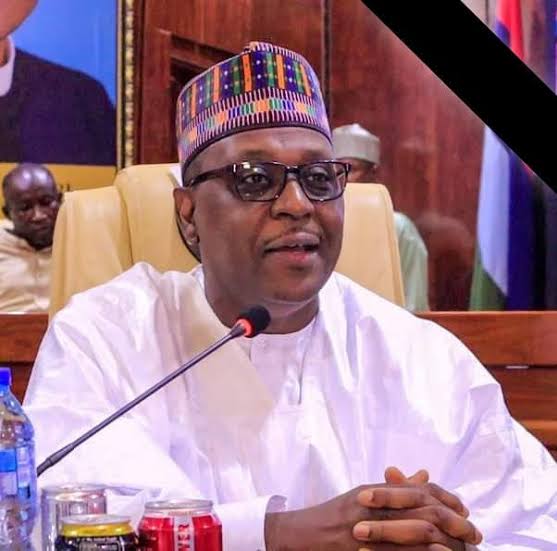News
Japa: Nigeria lost 16,000 doctors to foreign countries in five years —Minister

The Coordinating Minister of Health and Social Welfare, Prof Ali Pate, on Sunday, confirmed that the brain drain phenomenon popularly known as ‘Japa Syndrome’, has robbed Nigeria of it’s best hands in the health sector as not less than 16,000 doctors have left the country in search of greener pastures in foreign countries.
Pate who disclosed this when he featured as a guest on Channels Television programme, Politics Today on Sunday, lamented that Nigeria has seen a generation of young doctors, health workers, tech entrepreneurs and a number of professionals abandoned the country for greener pasture abroad.
The Minister decried that presently, only 55,000 licensed doctors are in the country to attend to the growing population of patients following the exodus of health professionals to hospitals and health facilities abroad.
“In the last five years, the country lost about 15,000 to 16,000 doctors to the Japa syndrome while about 17,000 had been transferred,” he said.
“There are about 300,000 health professionals working in Nigeria today in all cadres. I am talking about doctors, nurses, midwives, pharmacists, laboratory scientists and others. We did an assessment and discovered we have 85,000 to 90,000 registered Nigerian doctors.
“Not all of them are in the country. Some are in the Diaspora, especially in the US and UK. But there are 55,000 licensed doctors in the country.”
“The issue overall, in terms of health professionals, is that they are not enough. They are insufficient in terms of the skills mix. Can you believe most of the high skilled professional doctors are in Lagos, Abuja and a few urban centres? There is a huge distribution issue.”
The Minister gave a breakdown of doctors currently practicing in major Nigerian cities, but noted that the doctor to patient ratio was inadequate for the country.
“The population of doctor overall is about 7,600 doctors in Lagos and 4,700 or thereabout in Abuja. The doctor to population ratio in Abuja is 14.7 per 10,000 population. These are numbers that you can verify. In Lagos, it is about 4.6, even though the average is 2.2 by 10,000.
“There are huge distributional issues and they are, of course, the opportunities even for some of those who have been trained to get into the market.
“So you have to look at it from a perspective that is holistic. Not only doctors but other cadres that are important in the delivery of health care. For doctors, we have been losing many that have been trained.”
Pate revealed that the federal government was putting in place a mechanism to discourage the brain drain syndrome ‘since the oxygen of any serious health sector is its human resource’, and Nigeria cannot afford to continue losing its best brains to the developed countries.
“Now to the Japa you talked about, it is not only limited to Nigeria. It is a global phenomenon. Other countries don’t have enough.
“They are asking to take more. It is not only in Nigeria. It is happening in India, Philippines and other parts of Africa. In the last five years, we have lost about 15,000 to 16,000 and about 17,000 had been transferred. We’re barely managing.
“That’s why expanding their training will become logical. The same thing with nurses and midwives; they are also leaving. That’s why expanding the training is important to ensure those still around are well trained.
“We are beginning to take steps to expand the training and work environment, taking some steps to encourage salaries and incomes commission to do certain things that will encourage them to feel at home.
“But even the issue of working hours that has come about recently, particularly for the junior doctors, is being addressed.
“This is because when some of their colleagues leave and they remain at home, the burden has not reduced.
“And so they work extremely hard. We’ve listened to that. We are looking at how we can alleviate that and with the Medical and Dental Council of Nigeria, we are looking at how, within the code of ethics and the guidelines for the physician, to provide some safeguards to ensure they are treated as valuable assets so they are not burnt out,” the Minister said.
Join the conversation
Support Ripples Nigeria, hold up solutions journalism
Balanced, fearless journalism driven by data comes at huge financial costs.
As a media platform, we hold leadership accountable and will not trade the right to press freedom and free speech for a piece of cake.
If you like what we do, and are ready to uphold solutions journalism, kindly donate to the Ripples Nigeria cause.
Your support would help to ensure that citizens and institutions continue to have free access to credible and reliable information for societal development.
























